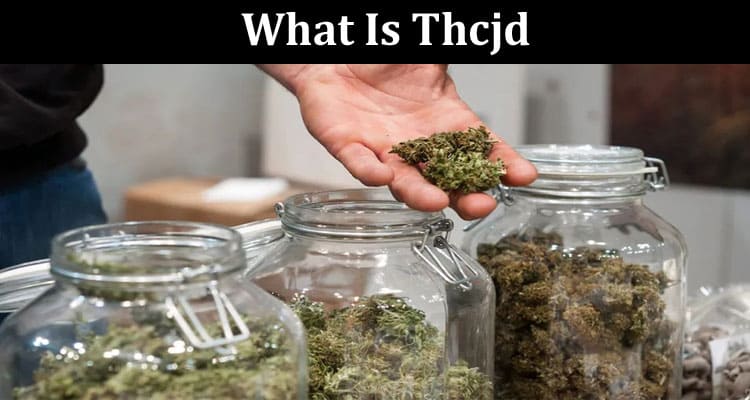As an unknown cannabinoid, THCjd is promising and producing a high wave in the cannabis industry. In this article, we’ll explore where the cannabinoid came from, what it does to the body, and whether or not it can get you high. The answer to both of those questions is yes, thcjd can get you high. But that’s not all this cannabinoid does for the human body! So if you’re looking for an answer on whether THCjd will get you high, keep reading.
Origin:
In the mid-1990s, a scientist at the California Pacific Medical Center, John W. Huff, grew a strain of cannabis that was unusually high in tetrahydrocannabinol (THCjd). He named the strain THCC#9 open-sourced and given to anyone who requested it. The original plant had a THC content of 15 percent, which has led many to believe that this was the world’s first 10-carbon cannabinoid.
What is thcjd?
It is one of the rarest cannabinoids found in the cannabis plant. All other cannabinoids share a structure with them, but there is a crucial difference between them. The structure of the THCjd is different from the rest because it has a 10-carbon ring in its molecular structure instead of a 6-carbon ring like most cannabinoids.
This molecular pattern of having 10-carbon atoms in its molecular structure is what makes this cannabinoid so rare, as only one other cannabinoid has an exactly 10-carbon ring: cannabidiol (CBD). In addition, because of its 8-link alkyl side-chain, the THCjd has a slightly different chemical structure than THC.
THC vs. THCjd: What’s the Difference?
Both share similar properties, but if you are wondering what the difference between THC and THCjd is, here it is: THC is typically found in marijuana and has psychoactive properties. The most active cannabinoids that make up this compound are Δ9-tetrahydrocannabinol (THC) and cannabidiol (CBD).
The THC is not psychoactive compared to its counterpart but has strong analgesic and antiemetic activity. Moreover, the cannabinoid acts as a partial agonist at both CB1 and CB2 receptors.
But when it comes to THCjd, the similarities end there. CBD does not have psychoactive properties at all. Instead, it’s well known for its medicinal benefits and causes no anxiety or highs! On top of that, THCjd doesn’t cause you to get high the same way that THC does.
Does THCjd get you high?
According to a report, it is 19 times stronger than delta-9 (THC) and over 25 times more potent than delta-8. This strength makes it easy to get high from smoking just one joint! So, how does this cannabinoid get you high?
There are only two ways that it’s possible to get a high from thcjd. The first is through consuming it by vaporization. The vapor will contain THCjd and is easily inhaled. This method has been known to cause levitation in some people; however, this can typically only be achieved through smoking cannabis flower rather than extracts or oils like the THCjd.
What are the effects of thcjd?
Many health benefits come with the consumption of thcjd. For example, it is more likely than most people realize to help with seizure disorders, fibromyalgia, and cancer treatment. On top of that, it has been shown to help in muscle spasms caused by multiple sclerosis or ALS (Lou Gehrig’s). More recently, in 2017, thcjd has been effective in helping with Post Traumatic Stress Disorder (PTSD).
According to a report published in the Journal of Clinical Investigation, PTSD is caused by a deficiency of endogenous cannabinoids. The report suggests that the THCjd has effects that are “remarkably similar” to those of serotonin and is effective.
The THCjd helps to increase cell regeneration and serotonin levels, which help with stress and anxiety. The author, Dr. Joris Voorn, suggests that this could be used ” as an add-on therapy to existing therapies.”
The cannabinoid also has various other benefits, including improving mood, reducing anxiety and insomnia, and relieving pain and inflammation. In addition, the report shows that the consumption of thcjd is correlated to improved cognitive performance.
Any Side effects of Using it?
Dry mouth, red eyes, increased heart rate, and loss of coordination are a few side effects of using thcjd. In addition, it has been shown to cause severe anxiety and depression, so it is important to consume it in small doses. However, like most cannabinoids, it has also been effective at killing cancer cells. Other than that, it’s not known for negative side effects like some other cannabinoids can be.


